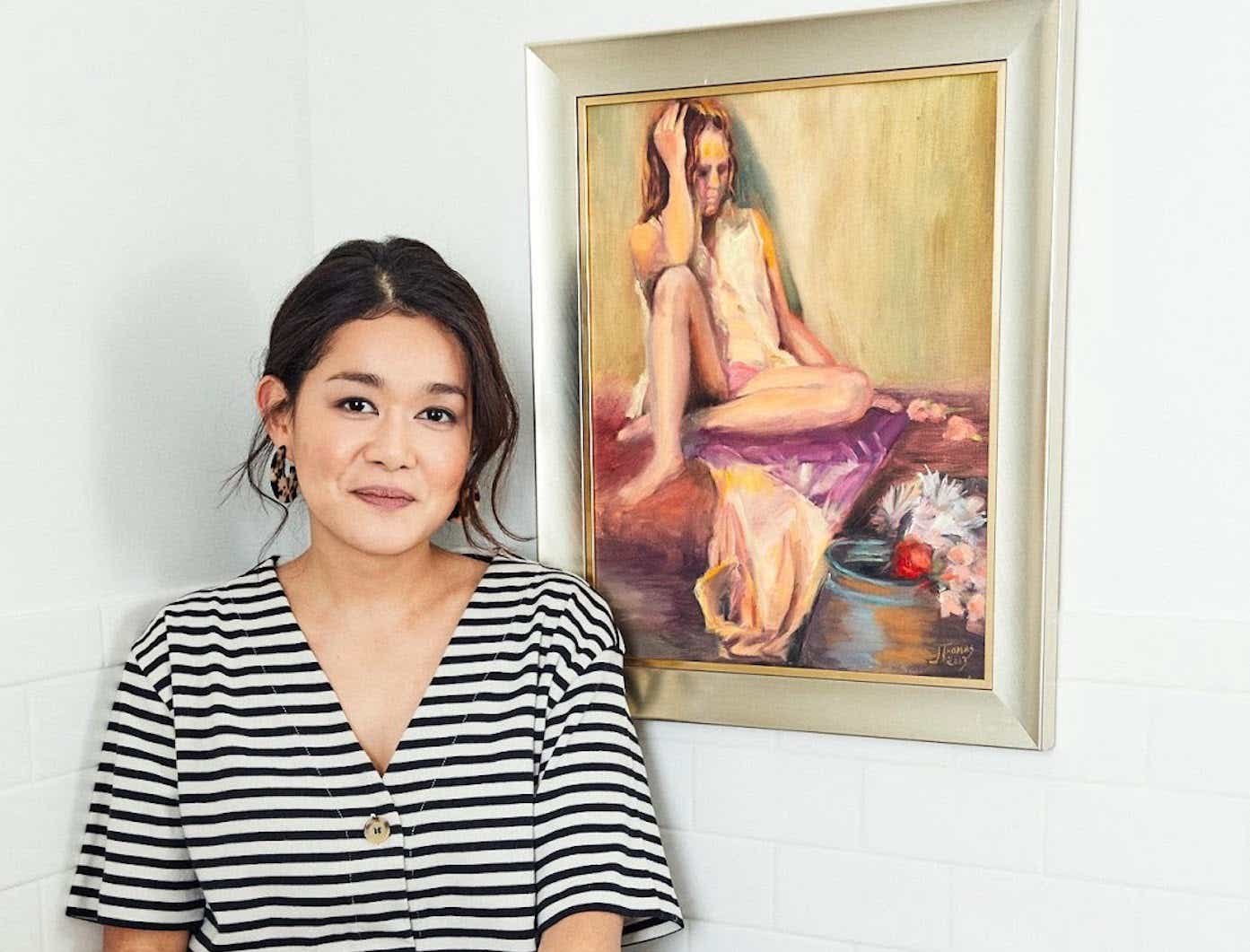Alisha Ramos, of ‘Girls’ Night In,’ on searching for a therapist as a daughter of immigrants.
July is Minority Mental Health Awareness Month. This year, it’s happened to fall during a global pandemic, when self care is more important than ever. Finding the right therapist can be challenging, but the search is even more difficult for immigrants, and people of color, who want someone who can relate to their unique experiences.
Alisha Ramos, the Founder/CEO of the popular Girls’ Night In newsletter, writes about her search for a Korean American therapist.
I texted my friends the other day with feelings of excitement and resolve. After a few years of taking a break from seeing a therapist, I had finally booked an appointment with a new therapist. Admitting you may need help is tough and takes courage, and I was proud of myself for taking that step again. But my excitement wasn’t about booking the appointment itself — it was that my new therapist is Korean American.
Let’s rewind to a few months ago, when I first started my search for a new therapist. (Yes, it’s been a months-long process, and soon you’ll find out why.) I Googled, I searched all the online directories for therapists, counselors, psychologists, and more, and yet, I kept seeing the same things…therapists who seemed great, but didn’t quite feel like the best fit for my needs right now. To put things bluntly, every therapist I found was white. Obviously, there is absolutely nothing wrong with being a white therapist, but I wanted someone who could fully understand what I’m going through right now.
Why does my therapist’s background matter to me? While I can’t share all the personal details of my therapy journey, what I can share is that I’ve never felt fully heard. At one point, I saw a therapist who didn’t quite “get” the culture from which I come — that is, as a daughter of first-generation immigrants who came to this country from the Caribbean and Korea. I decided enough was enough after they made some eyebrow-raising, generalizing and borderline-stereotypical remarks about my upbringing in a part-Asian household.
There are many nuances of the minority and first-generation experience, that a therapist who does not come from such a background and whose family has lived here for generations would not fully understand. While the larger themes and frameworks taught in therapy can definitely be generalized for all individuals, it feels really nice to speak to someone who fully understands you, and understands the situations that children of immigrants may face, such as the financial pressure you might be under, childhood traumas, the stigma of therapy itself, complex family dynamics and “obligations,” complex feelings around success and failure, that weird/funny/slightly terrifying thing that Korean parents do specifically when they’re disappointed, guilt (oh, the guilt!), and more. This post from my friends at Brown Girl Therapy does a wonderful job breaking down some more common mental health struggles of children of immigrants (and minorities at large, too).
If the point of therapy is to share my experiences and reflect on them, shouldn’t I at the very least have access to therapists who can fully understand where I’m coming from? For minorities or children of first-generation immigrants like myself, being vulnerable isn’t necessarily encouraged in our upbringing. Having a truly safe space and empathetic person to talk to is critical in breaking down that barrier.
July is Minority Mental Health Awareness Month. I fully believe that having access to a more diverse network of therapists is part of the key to unlocking the stigma, barrier, and frankly, daunting feelings that many minorities face when seeking help. It’s very scary to take the first step and book that appointment. We must destigmatize and normalize therapy by diversifying our therapist ecosystem. I admit I don’t have the answers on how to do that, but I imagine a lot of it comes down to the system. How can we provide more tools, resources, and capital to therapists of color, or individuals who wish to pursue this path? How do we tackle it from a policy perspective — why isn’t therapy covered by my insurance as preventative care?
At Girls’ Night In, we’ve chosen to support The Loveland Foundation through our fundraiser because they do exactly this — their innovative Therapy Fund is a grassroots organization that literally donates therapy sessions for Black women and girls who need it. How could we potentially magnify this type of work, and cover more minority groups, as well as support the therapists themselves? If you’re working on this, I’d love to hear from you: hello@girlsnightin.co.
As we enter this long, un-ending era of social distancing, taking care of our mental health and seeking therapy is a critical part of self-care. Let’s all work together to ensure it is accessible for everyone.
Alisha Ramos is the Founder/CEO of the popular Girls’ Night In newsletter and its newly launched The Lounge community, built for gathering and connecting online and IRL for gatherings like book club, DIY nights, and more.
This originally appeared on Medium.









